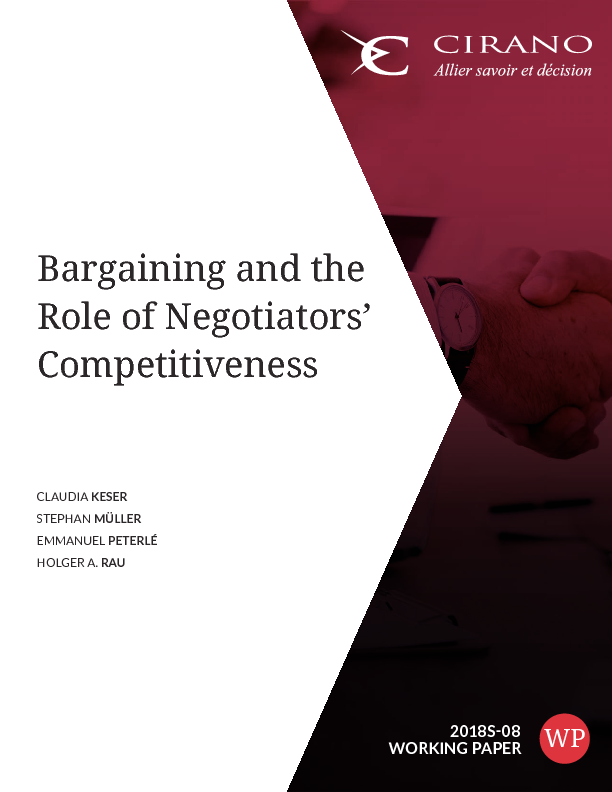Bargaining and the Role of Negotiators’ Competitiveness
This paper experimentally tests the relation between subjects’ competitiveness and bargaining behavior. Bargaining is investigated in a demand-ultimatum game, where the responder can request a share of the pie from the proposer. The re-sults show that highly competitive proposers earn less, since they make lower offers, which are more often rejected. Similarly, highly competitive responders achieve lower payoffs, since they request excessive amounts which induces lower proposals. These findings establish a link between competitiveness and bargaining as suggested by social and evolutionary psychology. Thus, we identify one driver of the empirical heterogeneity of bargaining behavior and outcomes. From a management perspec-tive our findings highlight that giving thought to employees’ competitiveness before delegating them to participate in negotiations may pay off.




